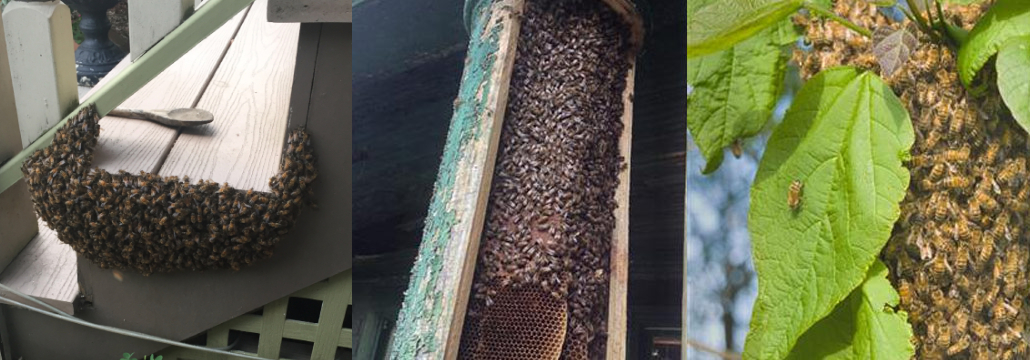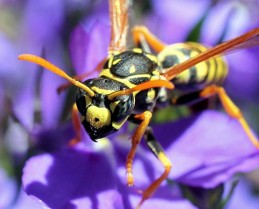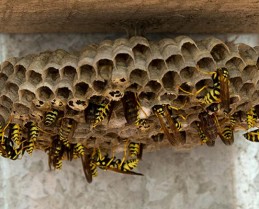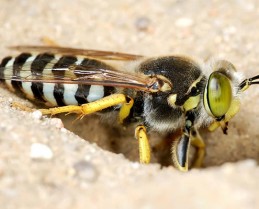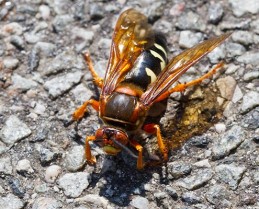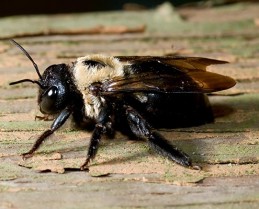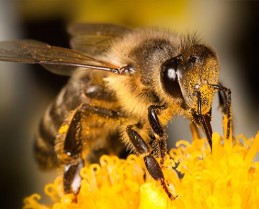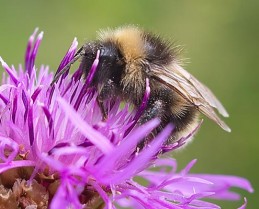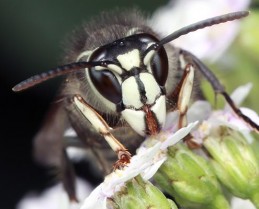HONEY BEE REMOVAL PITTSBURGH
Honey bees of the stinging insects much maligned because of other stinging insects, are by far the most placid. Providing that they are not abused, they will go about their very important business. Honey bees are a protected species and are dealt with in conjunction with local bee-keeping associations. The goal, whenever possible, is to preserve these beneficial insects. Honey bees are extremely important as pollinators throughout the world. In the United States alone it is estimated that without the involvement of the honey bee, upwards of 80 percent of all vegetables and fruits. would be impacted – one-third of the food that you eat! Hence the international concern which has been highlighted frequently over the past several years via the media about the strange and dramatic decline in honey bees referred to as colony collapse disorder.
Where do honey bees colonize?
Wild honey bees most commonly colonize hollow trees, hollow walls, and attics. When an existing colony splits, the honey bees that leave the hive or nest are referred to as a swarm. Honey bees in a swarm are very docile and unlikely to sting because at this stage they harbor no food stores or young.
As long as honey bees colonize a beekeeper’s hive or hollow tree, all is well. However, when they become established inside the cavity of a building this can be very troublesome. Mature hives can support 20,000 – 80,000 individual honey bees, with the nest weighing hundreds of pounds. Although occasionally visible, a honey bee nest is normally enclosed, the location of which can be indicated by observing honey bees flying in and out of an exterior crack or gap. (NOTE: The entrance should NOT be interfered with!!!)
Certified Master Beekeeper on Staff
Bee Control is proud to offer a Certified Master Beekeeper on staff who specializes in the live removal and relocation of honey bee colonies from structures. With the decline in honey bee population in recent years the preservation of this beneficial insect is the top priority for Bee Control Pittsburgh and their staff. Bee Control is heavily involved in removing colonies and their nests intact from buildings whenever possible and relocating the honey bees to a beekeeper’s hive to ensure everyone will continue to benefit from the work of those bees. This process is by far the most time-consuming, messy and laborious activity Bee Control performs.
Note: If stung by a honey bee, the stinger is left in the victim. Do not squeeze the area. Use a fingernail, credit card edge, or knife edge to scrape across the stinger immediately!
Contact Bee Control Today
If you believe you have a problem with honey bees, call Bee Control today at (412) 765-0335. We service the entire Greater Pittsburgh area including areas of the North Hills like West View, Richland, Allison Park, McCandless, Ross Township, Fox Chapel, Shaler, Gibsonia, Hampton, Marshall Township, Ben Avon Heights, Ohio Township, and surrounding areas. We also frequently help clients in the South Hills, including towns like Mt. Lebanon, Bethel Park, Upper St. Clair, Peters Township, Baldwin, Dormont, Pleasant Hills, McMurray, Bridgeville, and surrounding areas. We travel to the surrounding counties including places like Cranberry Township, Cannonsburg, Mars, Seven Fields, Butler, Murrysville, and many more. Areas like Sewickley, Monroeville, Oakmont, Moon, Kennedy, Coraopolis, Churchill, Forest Hills, Robinson Township, and others are also areas of Pittsburgh that we often receive calls from businesses and homeowners who are having problems with honey bees.


